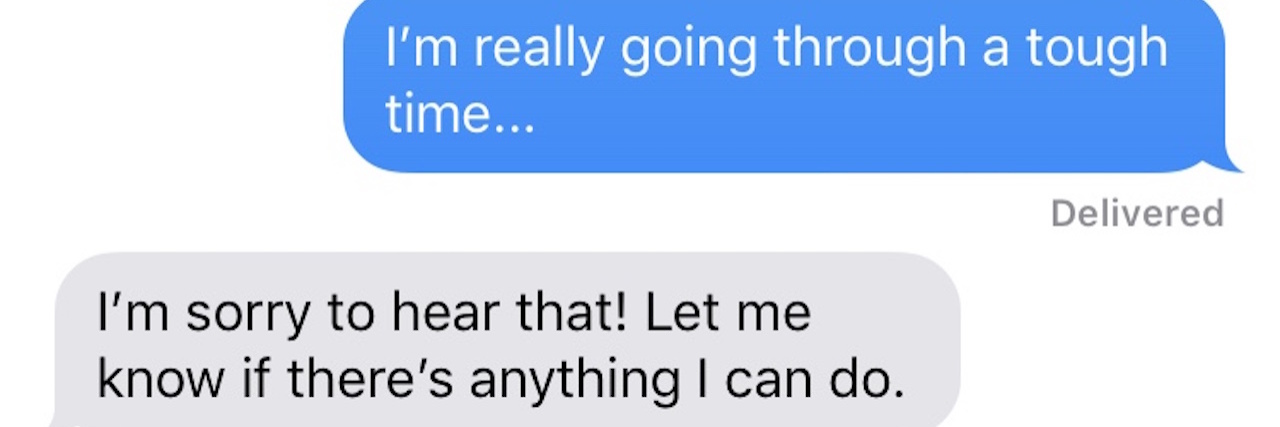“Let me know if there’s anything I can do!”
I cannot count the number of times I have heard this phrase retorted at me when I confide the details of a medical or personal situation. I typically smile and say thanks, but my heart is disappointed. Why would such a seemingly kind offer disappoint me?
Well, it is often incredibly disingenuous. When I first began to seriously struggle with my health, I was naive to the true intentions of those who spouted this phrase. When people would say this to me I would get that warm, tingly feeling in my heart that you get when you feel loved and supported. It wasn’t until time started to tick by that I realized how empty these words typically are. Now don’t get me wrong, there are people who cheerfully chirp this phrase and genuinely mean it. I have had people say this and then subsequently visit me in the hospital, even bring me food, and also text me to ask how I am. However, for the majority of people who let this phrase slide off their tongue like a dropped bar of soap in a wet shower, it was followed up by nothing at all.
For all the people who have said, “let me know if there’s anything I can do to help,” you would never think I would have spent so many hours in the hospital alone. So many days and weeks of dizziness, depression and hopelessness without a single text asking how I’m doing or a single friend stopping by to see me.
I organized a small fundraiser supporting women’s heart health, a cause I obviously care deeply about as a woman living with an arrhythmia disorder, and felt absolutely dismayed as so many people who had once said “let me know if there’s anything I can do to help” complaining or neglecting to participate. “This is something you could do to help,” I thought, as I tried to convince people to help who had told me they wanted to. It was from these experiences that I learned this phrase is common not because everyone wants to support and encourage you during the worst of times, but rather because many people feel obligated to pledge their support even when they don’t intend to follow through with their statements.
Realizing this can be a very distressing time for someone newly chronically ill and a disappointing reality for someone well into their journey. If you have found yourself offering hollow words of support, I challenge you to put actions behind your statements of concern. Instead of telling someone “let me know if there’s anything I can do to help,” ask yourself what you can do to support this person and then do it. Ask yourself what you would want others to do for you if you were in the same situation. Your decision to send a text, or call, or spend an hour of your day visiting someone could not only make someone’s life better, but save it.
We want to hear your story. Become a Mighty contributor here.

